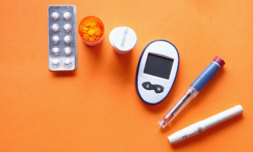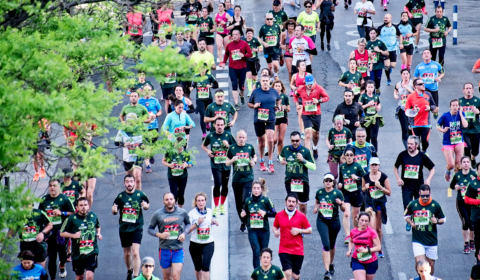Diabetics are more likely to have complications during pregnancy, irregular menstrual cycles, and less enjoyable sex. Does the condition create an unintentional gender gap?
Two months after I was diagnosed with type 1 diabetes, my body finally started to function normally again, and my period came back.
But with the return of the monthly cycle came more than just the usual chocolate cravings and episodes of crying. My glucose sensor went through the roof, and no amount of exercise or carb-restriction seemed to bring it down.
That day, I discovered that our glucose levels are affected by more than just the amount of carbohydrates in the food we consume. I found out about the impact our emotions also have on those numbers, as well as the amount of insulin – a growth hormone produced by the pancreas – the blood can absorb to manage glucose levels and keep us energised.
Unfortunately, type 1 diabetics are already at a disadvantage when it comes to this, as we need to inject daily doses of insulin to ensure the glucose we intake is being used efficiently. But undergoing five to seven days of utter emotional rollercoasters every month on top of that takes its toll.
The monthly hormone roller coaster
Periods are perhaps the largest – although not the only – barrier to living a completely normal life that diabetic women find heightened by the need to inject insulin.
While the female population in the UK is less likely than men to get diabetes, periods, as well as pregnancy and menopause, make the condition a lot more burdensome.
Eleanor Noyce, who was diagnosed with Type 1 diabetes in 2015, says periods are a ‘huge hormone influx’. While she has never had to take more insulin to treat sudden fluctuations in her glucose levels, she will often get emotional and hormonal – and having to deal with diabetes on top of that is frustrating, she notes.
The 24-year-old sometimes experienced period pain so bad she couldn’t get out of bed. Switching to the pill a couple of years ago not only helped subside that pain, but has kept her periods regular too.
PhD student Becca Hill, 28, also finds that her period makes her a lot more emotionally sensitive, reducing her capacity to manage glucose levels. Periods also increase her body’s resistance to the insulin and her cravings for food, meaning she needs to increase her doses of the hormone too, she notes.
Hard work can go a long way, but good control during a period also relies on people having a super regular and conventional cycle, which so many people don’t have, says Celia Bergin, a 21-year-old student from the University of Warwick.
‘I think it’s something that schools and employers should be more considerate of under reproductive awareness, and that medical professionals should factor into diabetes care,’ she says.
Across the month, a woman’s hormones are constantly changing, with most finding that their blood sugar levels rise during the last stage of their cycle – three to five days before their period, explains expert nutritionist Lujain Alhassan.
She says it’s important to closely monitor blood sugar levels – especially during that time of the month – as well as exercise regularly to help manage those fluctuations.




















